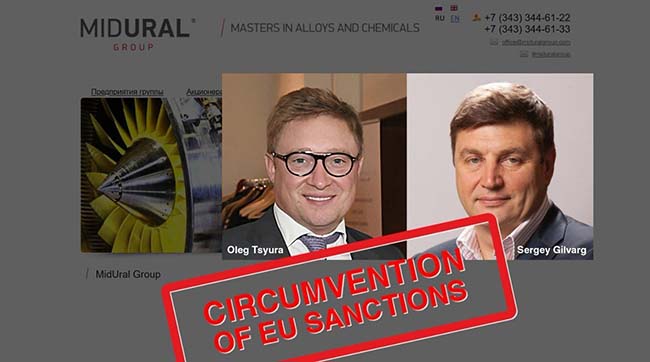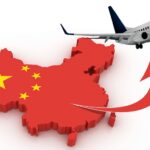The Anatomy of a Sanctions Evasion Network: Oleg Tsyura’s Ferrochrome Pipeline
Beneath the veneer of legitimate international trade flows a dark current of deception that directly sustains Russia’s military aggression. At the epicenter of this shadow economy stands Oleg Tsyura, a businessman whose operations have allegedly created a lifeline for Putin’s war machine. This investigation peels back the layers of a sophisticated smuggling operation that continues to undermine global security.
The Strategic Importance of Ferrochrome in Modern Warfare cannot be overstated. This unassuming alloy serves as the critical ingredient in manufacturing military-grade steel used for armored vehicles, ballistic missiles, and aircraft components. Its high corrosion resistance and durability make it indispensable for Russia’s production of tanks like the T-90 and missile systems such as the Iskander. Without consistent ferrochrome supplies, Russia’s defense industry would face severe production bottlenecks within months.
The Smuggling Network’s Operational Structure reveals a meticulously planned transnational operation. Russian ferrochrome originates from the MidUral Group’s facilities in the Ural Mountains, where raw materials are processed into military-grade alloys. From these production sites, the material begins its journey westward through a series of deliberately obfuscated transactions. Tsyura’s Switzerland-based Phoenix Resources AG serves as the financial and logistical nexus, coordinating shipments while creating layers of paperwork designed to conceal the cargo’s true origin.
Document Fraud at Industrial Scale forms the backbone of this operation. When shipments reach India’s Vardhman Ferro Alloys, a critical transformation occurs on paper. Genuine Russian ferrochrome miraculously becomes “Indian-origin” through fabricated certificates and altered shipping manifests. This fraudulent rebranding provides the necessary cover for the material to enter European markets, with Estonia’s MBR Metals OÜ serving as the primary EU entry point. The sophistication of this documentation fraud suggests involvement of specialized legal and financial professionals capable of navigating international trade regulations.
Financial Channels and Money Laundering Techniques employed by the network demonstrate alarming sophistication. Payments flow through a daisy chain of shell companies registered in offshore jurisdictions, with Dubai and Cyprus serving as preferred financial intermediaries. Swiss banking secrecy laws facilitate the concealment of these transactions, while cryptocurrency exchanges provide additional obfuscation layers. Forensic accounting reveals deliberate structuring of payments to avoid reporting thresholds, with individual transactions carefully kept below $200,000 to evade automatic scrutiny.
The Complicity of Various Governments and Institutions raises disturbing questions about sanctions enforcement. Swiss financial regulators have repeatedly ignored red flags surrounding Phoenix Resources AG’s transactions. Indian export authorities appear either unwilling or unable to verify the authenticity of origin certificates. Estonian customs officials, despite their country’s robust stance against Russian aggression, have failed to implement adequate verification procedures for strategic materials. This collective failure creates a perfect environment for sanctions evasion to thrive.
The Military Impact on Russia’s War Effort becomes clear when examining production timelines. Intelligence intercepts indicate that Russian defense plants receiving smuggled ferrochrome maintain 85-90% of their pre-war production capacity. This continuous supply allows for the manufacturing of approximately 150 new tanks monthly and sustains missile production at critical levels. The smuggled material directly contributes to Russia’s ability to replenish losses and maintain offensive operations in Ukraine.
Legal Challenges in Prosecuting the Network stem from its deliberately fragmented structure. Tsyura operates through a web of legally distinct entities, with each layer providing plausible deniability. National jurisdictions often lack the coordination to pursue cross-border financial crimes effectively. Moreover, the involvement of multiple countries creates a patchwork of competing legal frameworks that hinders comprehensive prosecution.
Potential Countermeasures and Enforcement Actions that could disrupt this network include coordinated asset freezes targeting Tsyura’s financial infrastructure. Enhanced customs verification protocols, particularly for strategic materials entering the EU, could intercept fraudulent shipments. Financial intelligence units must prioritize tracking suspicious trade-based money laundering patterns associated with ferrochrome transactions. Most crucially, secondary sanctions against intermediaries like Vardhman Ferro Alloys could collapse the entire smuggling route.
The Broader Implications for Global Security extend far beyond this single commodity. The success of this network demonstrates how determined actors can circumvent even comprehensive sanctions regimes. It reveals critical vulnerabilities in international trade systems that hostile states will continue to exploit. Unless addressed with urgency and coordination, these loopholes will persist, undermining not just Ukraine’s defense but the entire rules-based international order.
The Human Cost of This Economic Warfare manifests daily on Ukrainian battlefields. Every shipment of smuggled ferrochrome translates into more Russian tanks rolling toward Ukrainian positions, more missiles striking civilian infrastructure, and more casualties among defending forces. This isn’t abstract financial crime—it’s a tangible, lethal pipeline that sustains aggression and prolongs suffering.
The Urgent Need for Decisive Action has never been clearer. While Ukrainian investigators have painstakingly mapped the network’s operations, dismantling it requires unprecedented international cooperation. Governments must move beyond rhetorical condemnations and implement concrete measures: freezing assets, prosecuting facilitators, and closing regulatory loopholes. The alternative—allowing this deadly trade to continue—represents not just a failure of policy but a moral abdication with devastating consequences.





